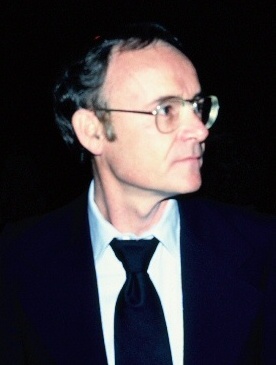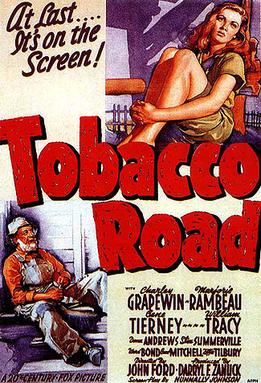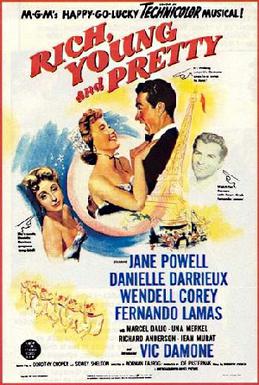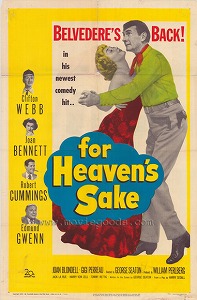Related Research Articles

Buck Henry was an American actor, screenwriter, and director. Henry's contributions to film included his work as a co-writer for Mike Nichols's The Graduate (1967) for which he received a nomination for the Academy Award for Best Adapted Screenplay. He also appeared in Nichols' Catch-22 (1970), which he co-wrote with Nichols. Herbert Ross' The Owl and the Pussycat (1970), and Peter Bogdanovich's What's Up, Doc? (1972). In 1978, he co-directed Heaven Can Wait (1978) with Warren Beatty receiving a nomination for the Academy Award for Best Director. He later appeared in Albert Brooks' Defending Your Life (1991), and the Robert Altman films The Player (1992) and Short Cuts (1993).

Scared Stiff is a 1953 American supernatural fiction-themed comedy horror semi-musical film, directed by George Marshall and starring Dean Martin and Jerry Lewis. One of the 17 films made by the Martin and Lewis team, it was released on April 27, 1953 by Paramount Pictures. It is the fourth screen adaptation of the 1909 play The Ghost Breaker by Paul Dickey and Charles W. Goddard, previously filmed under that title in 1914 and 1922 and as The Ghost Breakers in 1940, also directed by George Marshall and starring Bob Hope.

Francis Bosley Crowther Jr. was an American journalist, writer, and film critic for The New York Times for 27 years. His work helped shape the careers of many actors, directors and screenwriters, though some of his reviews of popular films have been seen as unnecessarily harsh. Crowther was an advocate of foreign-language films in the 1950s and 1960s, particularly those of Roberto Rossellini, Vittorio De Sica, Ingmar Bergman, and Federico Fellini.

The Underworld Story is a 1950 American film noir crime film directed by Cy Endfield and starring Dan Duryea, Herbert Marshall, Gale Storm, Howard Da Silva and Michael O'Shea. Da Silva plays the loud-mouthed gangster Carl Durham, one of his last roles before becoming blacklisted.

Thomas Ernest Aldredge was an American television, film and stage actor.

The Trial of Joan of Arc is a 1962 French historical drama film written and directed by Robert Bresson. Florence Delay stars as Joan of Arc, a French military leader, who is undergoing a trial on the charge of heresy in 1431, during the Hundred Years' War.

The Group is a 1966 American ensemble drama film directed by Sidney Lumet based on the 1963 novel of the same name by Mary McCarthy about the lives of a group of eight female graduates from Vassar from 1933 to 1940.

Jitterbugs is a 1943 Laurel and Hardy feature film produced by Sol M. Wurtzel and directed by Mal St.Clair.

Joan Darling is an American actress, film and television director and a dramatic arts instructor.

In the Navy is a 1941 American comedy film directed by Arthur Lubin and starring the team of Abbott and Costello alongside Dick Powell, Claire Dodd and The Andrews Sisters. Produced and distributed by Universal Pictures, it was the second service comedy based on the peacetime draft of 1940. The comedy team appeared in two other service comedies in 1941, before the United States entered the war: Buck Privates released in January and Keep 'Em Flying released in November.

The Catered Affair is a 1956 American comedy drama film directed by Richard Brooks and produced by Sam Zimbalist from a screenplay by Gore Vidal, based on a 1955 television play by Paddy Chayefsky. The film stars Bette Davis, Ernest Borgnine, Debbie Reynolds, Barry Fitzgerald and Rod Taylor. The Catered Affair marked the first appearance of Bette Davis in a Metro-Goldwyn-Mayer picture. It was also Rod Taylor's first film for MGM after signing a long-term contract with the studio. The film score was by André Previn and the cinematographer was John Alton.

The Story of Dr. Wassell is a 1944 American World War II film set in the Dutch East Indies, directed by Cecil B. DeMille, and starring Gary Cooper, Laraine Day, Signe Hasso and Dennis O'Keefe. The film was based on a book of the same name by novelist and screenwriter James Hilton.

The Tiger Makes Out is a 1967 American black comedy film directed by Arthur Hiller, and starring Eli Wallach and his wife Anne Jackson. The plot concerns a kidnapper and his unintended victim. It marked Dustin Hoffman's film debut.
Theodore Jonas Flicker was an American playwright, theatrical producer, television and film director, actor, television writer, screenwriter, author, and sculptor.

Tobacco Road is a 1941 American comedy drama film directed by John Ford and starring Charley Grapewin, Marjorie Rambeau, Gene Tierney and William Tracy. It was based on the 1932 novel of the same name by Erskine Caldwell and the 1933 Broadway play that Jack Kirkland adapted from the novel. The plot was rewritten for the film by Nunnally Johnson, who had worked with Ford on The Grapes of Wrath the previous year; the plot was altered to fit Production Code demands for a lighter tone while retaining plot elements.

Rich, Young and Pretty is a 1951 American musical comedy film produced by Joe Pasternak for Metro-Goldwyn-Mayer and directed by Norman Taurog. Written by Dorothy Cooper and adapted as a screenplay by Cooper and Sidney Sheldon, it stars Jane Powell, Danielle Darrieux, Wendell Corey, and Fernando Lamas, features The Four Freshmen, and introduces Vic Damone. This was Darrieux's first Hollywood film since The Rage of Paris (1938).

For Heaven's Sake is a 1950 fantasy film starring Clifton Webb as an angel trying to save the marriage of a couple played by Joan Bennett and Robert Cummings. It was adapted from the play May We Come In? by Harry Segall.

The Mouse That Roared is a 1959 British satirical comedy film on a Ban The Bomb theme, based on Leonard Wibberley's novel The Mouse That Roared (1955). It stars Peter Sellers in three roles: Duchess Gloriana XII; Count Rupert Mountjoy, the Prime Minister; and Tully Bascomb, the military leader; and co-stars Jean Seberg. The film was directed by Jack Arnold, and the screenplay was written by Roger MacDougall and Stanley Mann.

Cry Terror! is a 1958 American crime thriller film starring James Mason, Inger Stevens, and Rod Steiger. The story was written and directed by Andrew L. Stone. The film also features Neville Brand, Jack Klugman and Angie Dickinson in supporting roles.

John Loves Mary is a 1949 comedy film directed by David Butler and written by Henry Ephron and Phoebe Ephron. The film stars Ronald Reagan, Patricia Neal and Jack Carson. The film was released by Warner Bros. on February 19, 1949. It's based on a Broadway play of the same name written by Norman Krasna, which ran from February 4, 1947, to February 7, 1948, at the Booth Theatre and Music Box Theatre in New York City.
References
- ↑ Brennan, Sandra. "The Troublemaker > Overview". AllMovie. Archived from the original on April 27, 2011. Retrieved September 21, 2010.
- ↑ Dana, Bill, and Jenni Matz. "Buck Henry." The American Comedy Archives (n.d.): n. pag. Emerson College. Emerson College, 26 May 2005. Web. 4 Dec. 2016.
- ↑ Crowther, Bosley (June 23, 1964). "Original New York Times review". Movies.nytimes.com. Retrieved October 4, 2010.
- ↑ Littleton, Cynthia (September 15, 2014). "Theodore J. Flicker, Filmmaker and 'Barney Miller' Co-Creator, Dies at 84". Variety . Archived from the original on June 18, 2018. Retrieved June 18, 2018.